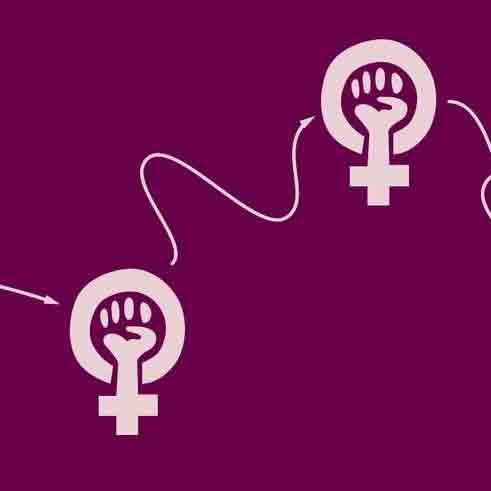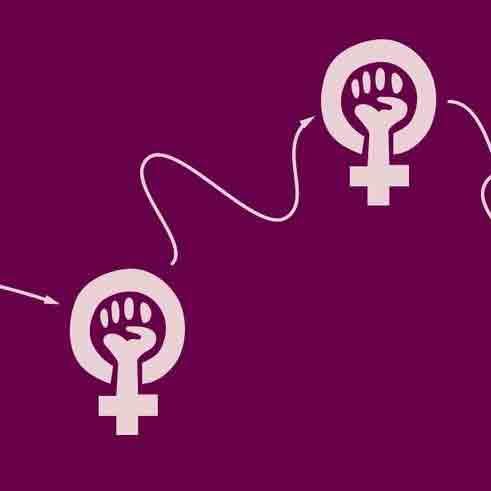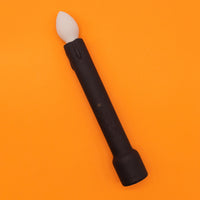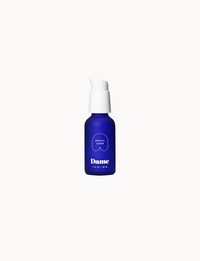Whether or not you’re newly sober, sober by choice, sober by necessity or just abstaining from drinking and doing drugs for your own health, you’re in for a bit of a change when it comes to sex, if this is your first time — at least, in a long time — having sex sober.
If something inside you feels a little bit of a knee-jerk “yikes” reaction, you’re not alone. So, we’re here to guide you through it, from the moment you think you may be ready to sleep with someone to the morning after and beyond.
“Taking your clothes off (and seeing someone else without their clothes) is a frightening prospect without alcohol, because alcohol numbs the fear. The trouble is, it also numbs the pleasure, so while we’re having sex while at some level drunk for all those years, we never get to understand what we really desire,” says Jennifer Matesa LMSW, author of four books about body, mind, and human well-being, including Sex in Recovery: A Meeting Between the Covers. “What I’ve heard is that a lot of people quit substances, start getting honest, and admit (or are reluctant to admit) that they don’t know what turns them.”
Only you know what you want and what you’re ready for, and the number one thing sobriety can give you is clarity.
You may not know exactly what you’re doing, feeling, or what you want. That’s ok. But being sober, you will be more likely to make thoughtful decisions about whether or not making the next move feels like a good idea (it might!) or if you’d only do it if you were under the influence. You may find in hindsight that you weren’t ready—you may even find that during—and even that is information. Only you know what you want and what you’re ready for, and the number one thing sobriety can give you is clarity.
“Everyone struggles with asking for what they want sexually, not just folks who are newly sober. We aren’t taught at all how to check in with our bodies and see what we actually desire. This is one of my favorite things to watch a woman get to explore,” says Genevieve Rudolph, an Erotic Embodiment Coach and Speaker, Former Professional Dominatrix, and Sexual Shaman.
She continued to explain that the reason that it’s so tricky to ask for what we want is that most people don’t even know what they want.
“They think they do, but they’re judging what they think they want from their mind rather than their body (or what they think they should want). The body holds the wisdom when it comes to sexual pleasure.”
Matesa says that before we can even ask for what we want, we have to figure that out.
“It’s hard for us humans to ask for what we want when we’re naked with another person, whether we’re getting sober or not. What I found out in writing my book is that many people start drinking in their youth because it’s so hard to ask for what they want—or to give themselves permission to experiment to find out what they want—and to be comfortable in their own bodies.”
It’s hard for us humans to ask for what we want when we’re naked with another person, whether we’re getting sober or not.
Some of the other challenges you can expect, says Matesa, are totally normal when all of a sudden, things that used to be “lubricated,” in more ways than one, feel super raw. For men and women, there could be issues with ejaculation and erections, achieving orgasm, feeling ashamed of your own desires, and difficulty communicating.
✱ ✱ ✱
You might suddenly be aware of how you sound, how you look, and get so in your head that you get anxious.
Sexual comfort, says Genevieve, is predicated by relaxation in your nervous system, and notes that nervousness and discomfort are simply parts of yourself that are warring with the brilliance that you are! Take time honoring yourself and feeling whatever parts of you feel scared, judgmental or nervous, loving them, and then celebrating them as they begin to relax! Hooray for pleasure re-wiring!
“When things are uncomfortable, it’s because we haven’t taken the time to re-wire (or change our neurological programming) with that particular act for comfort (and pleasure),” she says. “ Pleasure rewiring is so much fun! The number one way that I do this is by having a consistent self-intimacy practice, where you’re alone with your own naked body, and simply feeling into what you desire. Some days all I want to do is massage myself, sometimes I want to listen to yoga music and make funny sounds, sometimes I want to cry. All of these activities helps me to release whatever is blocking my true spirit from being embodied.”
✱ ✱ ✱
It’s important to get to know your own body before you start to explore others.
“A lot of people aren’t intimately familiar with their own bodies, so no wonder they feel like they need a drink to get naked with another person,” she says. “ Pleasure is a healing force, and the most important thing you can do for your sober sex life is to make friends with your own body and learn how it likes to receive pleasure.”
The most important thing you can do for your sober sex life is to make friends with your own body and learn how it likes to receive pleasure.
Her recommendation: ”It’s worth learning how to touch your own body in ways that give you pleasure so that, when the opportunity comes to have sex with someone else, you know what kinds of touch you like. (Buy a vibe—please! And then buy another. And buy some good non-drugstore lube. And then shoot us an email if you want some other recommendations.
“I’ve known a bunch of people who spent upwards of two years just getting to know themselves sexually, but it doesn’t have to be that long.”
✱ ✱ ✱
If you are in recovery, Matesa recommends something called “Practice Sex”.
“I’ve heard some people talk about great experiences having their first sober sexual encounters with people who are friends, who understand the person is in early sobriety, and who are on the same page about the encounter being experimental in nature—which is to say they understand the sex is not going to be about leading to an ongoing sexual relationship, but it’s more about having fun and discovering desire in the present moment. This can help people learn to establish sexual communication with another person and break the ice around “whether it still works."
If you are looking for casual sex, you may want to wait awhile, though. Matesa points out that given the technology, people are going to think immediately about hooking up, but she’s spoken with recovering people who have had sex with upwards of 30 partners, and some with many more, who have had orgasms with less than five of those, and some with only two or three. They couldn’t let themselves surrender to that level of pleasure with a person they did not know or like.
Don’t pressure yourself to “have sex,” whatever that means to you—find out what other ways you like to touch and be touched.
If you’re in a committed relationship, Matesa suggests taking a couple weeks away from the kind of sex you’re used to having.
That includes couples who haven’t had sex at all for a long time because of lots of alcohol use. Don’t pressure yourself to “have sex,” whatever that means to you—find out what other ways you like to touch and be touched. There are so many ways we humans like to be touched.
“We’re primates, and we love to groom each other and be groomed. The skin is our largest organ, and receiving caring touch anywhere on its surface boosts endorphins (our natural painkillers) and reduces cortisol (a stress hormone). There is no drug or cocktail on earth that can mimic the relaxing and connective effects of caring touch.”
✱ ✱ ✱
Genevieve suggests treating sex like an adult playground…
…. where it’s totally okay if you mess up, make funny sounds, cry, scream, check out, get turned off, whatever. You want sex to be a place where pressure is removed, where you can dance and play and start to rediscover yourself and your partner. Release the “goal,” and I would even go so far as to redefine “sex” as just time together with each others’ energy and bodies, rather than penetration or orgasms or whatever else your mind has decided sex to be.
You want sex to be a place where pressure is removed, where you can dance and play and start to rediscover yourself and your partner.
Also, communication beforehand is key to making sure both people have no expectations will be super helpful! Trust and know that everything is okay, no need to be or act a certain way. Go slowly, really let yourself explore sensations and emotions that may arise.
“Also, remember that sex is for PLEASURE - do your best to keep asking yourself the question, “What could make this even more pleasurable right now?” and keep following that. This will help to remove the pressure of trying to “do it right.” Perfectionism and turn-ons don’t do well together! Remove the perfectionism by continually asking yourself how this moment could be even more pleasurable - a breath, a pause, a different song, a kiss, a different touch, etc.
Sex is very different from most personal growth in that it really isn’t about feeling the fear and doing it anyway.
Shift your perspective, she adds: rather than noticing yourself feeling afraid and “pushing through,” pull back, rest, breathe, connect with your partner, and get really curious and loving towards these parts of yourself that you’ve been ignoring for a super long time.
“Sex is very different from most personal growth in that it really isn’t about feeling the fear and doing it anyway,” she says.
The reward: there will most likely be some healing that will occur when we have sober sex, as most likely, this is the first time that we’re engaging sexually with presence and consciousness, says Genevieve.




















































